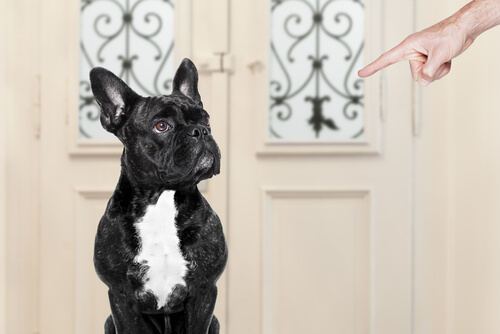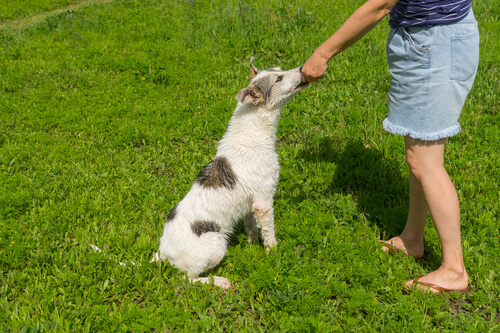5 Tips To Prevent Behavioral Issues in Your Dog

Causes of Behavioral Issues in Dogs
Your dog’s behavioral issues may have very specific, temporary reasons behind them. Stress is one example, like if you’ve moved to a new house or a member of the family has passed away. In these cases, the situation usually resolves itself with time.
But there may also be deeper reasons, such as trauma or fear from events in their past (abuse, abandonment, confinement, etc). These will take both time and patience. Your dog will also need the help of a specialist in animal behavior.

However, many behavioral issues in dogs come from mistakes that you’re making when training your dog and how you treat him every day. If you keep reading, you’ll find a few great tips to help with this.
How To Prevent Behavioral Issues in Dogs
Here are a few things that you can and should do so your pet won’t have behavioral issues:
1. Set Clear Rules
In every family, there must be a set of rules for all the family members, whether human or animal, if you want things to run smoothly. Most of all, you want consistency.
If the rule is that your dog cannot get into bed, everyone must enforce it. If you say no to your furry friend today, but yes tomorrow because it’s Sunday, or if your son enforces the rule but your daughter allows it, it’s confusing to your dog. He won’t know how to act.
2. Do Not Treat Your Dog Like a Human
Don’t forget that you are dealing with a dog. So do not involve your dog in human behaviors or expect him to act or reason like a person. Do not dress your dog up “fashionably” or make him wear accessories, perfume or cosmetic products other than those needed for proper canine hygiene.
Dogs do not care about these types of unnecessary things and they will only cause discomfort, allergies and behavioral issues because you’re forcing them to endure situations that are not part of their nature.
3. Let Him Be a Dog
The best thing you can do to keep your dog from getting stressed or traumatized and developing certain behavioral issues is to simply let him be a dog. You should allow your dog to:
- Socialize with other dogs.
- Explore the wonderful world around him with his nose when you’re on walks. Allow it even if that means he’ll smell unpleasant things like trash and feces.
- Get enough exercise. A dog that does not burn any energy gets bored and can become destructive — even aggressive.
4. Use Positive Reinforcement in Training

Be sure to arm yourself with patience and perseverance when you train your dog. Don’t get discouraged if you don’t get the expected results immediately.
Also, be sure to always use positive reinforcement to reward your dog’s good behavior. Just ignore his bad behavior instead of punishing him. If you punish him, he’ll turn into a frightened animal and develop behavioral issues.
5. Always Treat Your Dog Well
Good treatment, affection and respect often work wonders in both humans and animals. Therefore, to prevent behavioral issues, be sure to also follow these tips:
- Try not to leave your dog alone for too long at home.
- Do not keep your dog locked up in small spaces, even if it’s a balcony.
- Do not chain your dog to a dog house, whether on the patio or in the yard.
- Do not hit your dog for any reason.
This text is provided for informational purposes only and does not replace consultation with a professional. If in doubt, consult your specialist.